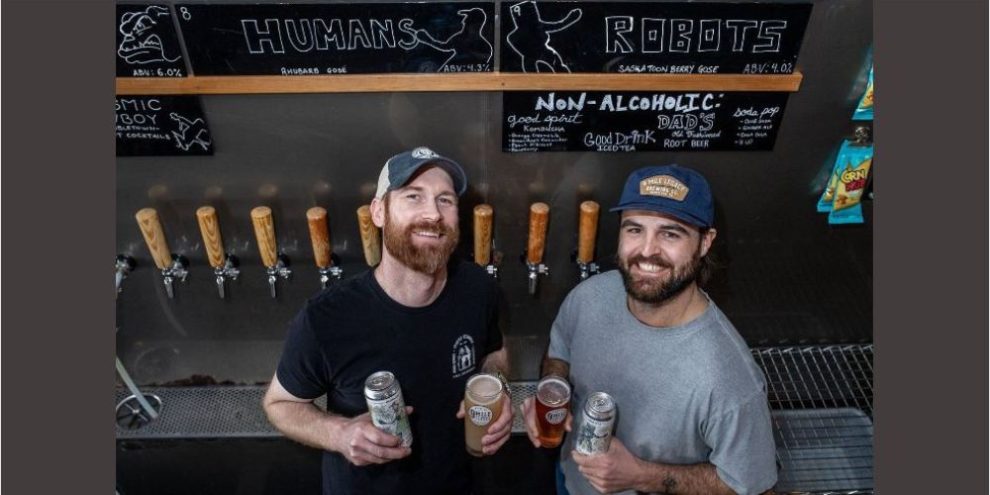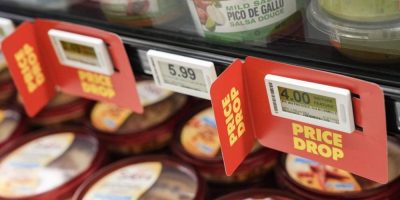
By Kelly Geraldine Malone in Saskatoon
It may have been the greatest battle between robots and humans to ever take place inside a Saskatchewan brewery.
The grain mash was masterful and the fermentation feisty as a brewer went head to head in a taste-off with ChatGPT to find out who, or what, can make the best beer.
The idea for the faceoff against the artificial intelligence-powered chatbot came out of a meeting between staff at 9 Mile Legacy Brewing, a Saskatoon nanobrewery known for making craft beer and pushing boundaries.
Garrett Pederson, 9 Mile’s co-founder and head brewer, said they were playing around with the explosively popular chatbot earlier this year and thought it would be fun to test the technology’s usefulness when it comes to one of the oldest drinks humans have produced.
“We will challenge it to make a recipe and I'll essentially make a recipe and we will see where that goes,” Pederson said.
Luke Clark, an assistant brewer, became Team Robot and was tasked with asking ChatGPT to come up with a recipe.
ChatGPT, developed by U.S.-based company OpenAI, uses written information already available on the internet to provide detailed responses to queries by users. It has received widespread attention for coming up with song lyrics, poems and scripts.
Clark said he started by asking the chatbot to “make an award-winning gose recipe using local ingredients.” A gose is typically a sour and salty beer with origins in Germany.
The chatbot started spitting out recipes, Clark said, and they all predictably included Saskatoon berries.
What wasn’t so predictable was the alcohol content. Some would have resulted in a beer with 30 per cent alcohol content, others with two per cent.
While the ingredient quantities weren’t quite right, Clark said he was surprised to see all the things that would be needed were there.
"I had … to keep refining it until I got something I could actually use and tweaked it a little bit,” Clark said.
Meanwhile, for Team Human, Pederson came up with his own recipe for a rhubarb ginger sour. He used the tried and true methods of researching old brew records and recipes, talking with other brewers and looking online.
"It's always long, with a lot of time and research put into it,” he said.
Once the brewing itself was complete, it was time for the true test to see how humanity would fare against the machine.
“You knew we’d never take the coming robopocalypse lying down” the brewery posted on social media announcing a blind taste test of the two beers to celebrate its eighth anniversary.
People gathered in the taproom last Friday. There was no way for them to know which beer was from a human-developed recipe and which one came from a robot. They sipped, they tasted and then they voted.
"They ended up being quite different but both really, really good, actually," Pederson said.
And while Team Human put in a good fight it was ultimately Team Robot that took the win with 60 per cent of the votes
Pederson said with a laugh that he suspects it was actually the malevolent artificial intelligence Skynet from the” Terminator” movie series that intervened.
"We are going to do a Round 2,” he said. “Just keep playing until I win."
Despite the outcome, the brewers don’t see the artificial intelligence taking over any time soon.
While it was interesting to see the chatbot gather information quickly from around the internet to understand the basics of the brew, it still required quite a lot of human intervention to make it something they could sell.
"I was just surprised it was drinkable beer at the end of the day,” Clark said.
This report by The Canadian Press was first published May 5, 2023.
Banner image - The Canadian Press





